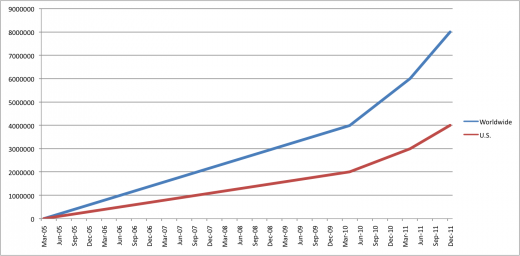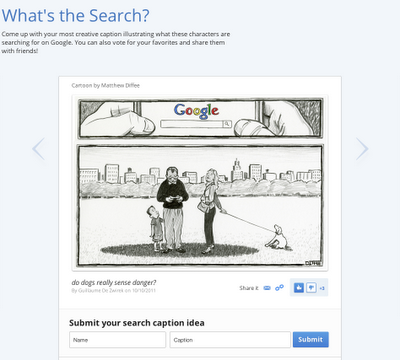It was a year ago April that Google made the first public announcement regarding the number of claimed Places listing. The number came in at 4 million worldwide. Yesterday at the BIA/Kelsey ILM West conference, Jeff Aguero noted that Google Places now has 8 million claimed Place Pages (out of 50MM worldwide). It was just this past March that Marissa Mayer, speaking at SwSX, noted that there were 6 million claimed Places.
The ability to claim a business listing was first rolled out in March of 2005 with the launch of Dashboard precursor, the Google Local Business Center. These four data points allow for some interesting analysis of the “run rate” at which Google is creating a direct relationship with business locations worldwide.
Here is a chart showing the growth since inception (U.S. data is estimated).
Some thoughts about the graph:
- With 8 million sign ups Google has the largest direct relation with SMBS of any local service
- This amounts to 16% of all business locations worldwide
- The growth during 2010 was ~2 million,
- Business were claiming their listing at a rate of 167,000 per month
- From March of this year until today, Google added 2 million more businesses
- The growth rate since March has been 250,000 new claimants per month
Obviously we are depending on Google for the numbers. We don’t really know how many businesses there are worldwide (I am sure that Google’s estimate is very approximate) and we don’t really know how Google is counting the 8 million. Does it include inactive accounts for business that are no longer active? Does it count twice businesses that have been claimed twice?
While there may be some questions surrounding the specifics of the numbers, the direction and rates seem pretty clear. As Everett Dirkson is purported to have said: A million here, a million there, pretty soon it adds up to real money. That certainly seems to be the case here.

